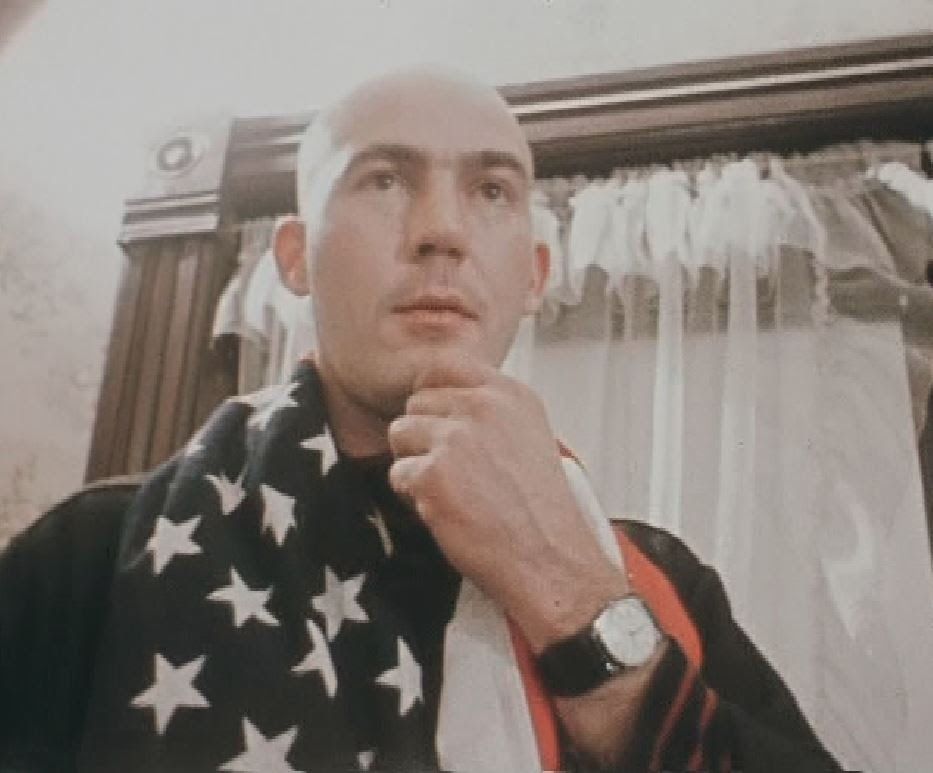Hunter S. Thompson lived a huge life. It’s so monumental that it’s nearly impossible to tell the whole widescreen Technicolor story.

I know, because I tried to wrestle that life between covers when I wrote Outlaw Journalist a dozen years ago.
At least I had the luxury of a book with wide-open pages.
To tell Hunter’s story on film is tougher. Maximum ass-time in seats rarely exceeds two hours, so you have that limit.
So what’s happened with tellers of Thompson stories is that they have begun to break off chunks of this epic life, to focus on just a part of the narrative.
A couple of years ago, Timothy Denevi examined Thompson’s 1970 political campaign and his influential role as a journalist covering the 1972 presidential campaign. He called his excellent book Freak Kingdom.
Daniel Joseph Watkins put together a lavishly illustrated coffee table book celebrating that 1970 campaign and now he’s co-directed a new documentary. Both the book and film are called Freak Power.
Watkins and his co-director, Ajax Phillips, have done a masterful job filleting the contours of Thompson’s life and creating a riveting, inspiring and heartbreaking documentary of a critical time in the life of Hunter S. Thompson and his country.
As the Sixties limped to that decade’s sad conclusion, Thompson retreated to Aspen, Colorado. He evacuated the Bay Area after a few years in San Francisco, where he’d witnessed the birth of the counterculture.
He found peace and beauty and the community he wanted in Aspen — like-minded friends he fondly called freaks. As was the case with most of the country in that foul era, there was a generational divide in the town.
Aspen’s powers-that-be included old-guard Germans who’d come to the Colorado ski village after ending their Nazi careers. They had become the new establishment, and, joined by the conservative town folk, they went to war with the long-haired young folk who’d moved to town to ski, fuck and smoke dope.
One of the stores posted a sign: No Hippies Allowed.
Into this world came Thompson, who soon joined in with the other young folk — Thompson was 33 in 1970 — to look for a different kind of society.
“We were the aberrants,” Thompson’s friend Ed Bastian said. “We were freaks of nature. So we might as well call ourselves freaks.”
With his friends, Thompson helped established the Freak Power movement. He was placed on the ballot as a candidate for sheriff, with a platform that called for renaming Aspen “Fat City.” It was a move to scare away developers and tourists. “Sod the streets at once,” he said elsewhere in his platform. He wanted a pedestrian town.
Though Thompson was funny, running for sheriff wasn’t really a joke. He believed that politics was the art of controlling your environment. And he and his friends thought they could really establish a new utopia in the mountains.
We so rarely take funny people seriously. Many assumed his campaign for sheriff was some sort of prank. Watching the film, you can see idealism in his eyes.
And what we also see in Freak Power is Thompson’s seriousness of purpose. He had a lot of good ideas, and planned to use the office of sheriff — if he’d won the election — as sort of an ombudsmen within the community.
Again, Thompson was ahead of his time. The sort of law-enforcement model he suggested is similar to the proposals we hear in the wake of the defund-the-police movement.
So he was putting forward a lot of great and innovative ideas, but he couldn’t help himself. He had to be funny.
For example: the incumbent sheriff, Carrol Whitmire, had a short, well-groomed head of hair. Since one of the gripes the Aspen old guard had with the hippies was with their tendency to be hirsute, Thompson shaved his head, so he could refer to Sheriff Whitmire as “my long-haired opponent.”
Freak Power shows the campaign in all of its glory. It makes no effort to tell the full-life story of Hunter S. Thompson. That might take three 10-episode seasons on Netflix.
Instead, you see this brilliant guy, climbing to his peak. His first book, Hell’s Angels, was behind him. Fear and Loathing in Las Vegas and his campaign coverage for Rolling Stone were ahead. (His first article for Rolling Stone was about the campaign)
Watkins and Phillips use 1970-era films from a variety of sources. The images are crisp and the sound is excellent. There’s nothing about this film that looks dated.
As always. Thompson’s civic wisdom is timeless. His analysis of American political experience — spoken 50 years ago in an Aspen hotel — could have been spoken yesterday.
Things are pretty foul. A lot of friends shake their heads about the state of the modern world and say, “I wonder what Hunter would say about all of this.”
He’s already said it.
Listen to him in Freak Power and re-read his political coverage. He warns us about the nation’s Trumps, no matter what their names. Denevi, in Freak Kingdom, pays tribute to Thompson’s enduring political wisdom.
Freak Power is a fantastically well-made film, laser focused on that long-ago campaign but with wisdom that resonates today. The story is told with the vintage film and with voiceovers by the surviving participants. They appear at the end, old soldiers speaking of their battle and their eventual survival.
Throat, meet lump.



